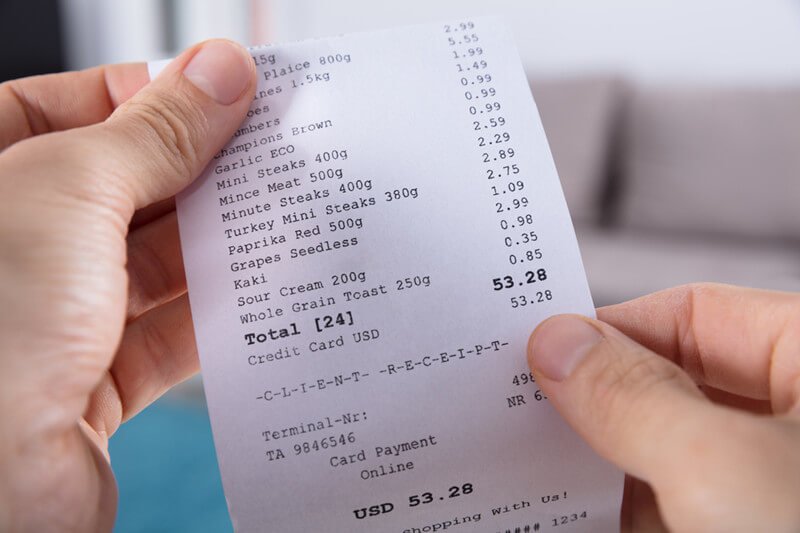Hazards of Handling Thermal Paper Receipts
Bisphenol A (BPA) in thermal paper presents several hazards, primarily due to its potential for exposure and its adverse health effects. Here are some key hazards associated with BPA in thermal paper:
- Skin Absorption: Thermal paper is commonly used in cash register receipts and tickets. When individuals handle these receipts, they can unknowingly transfer BPA to their skin. BPA can be absorbed through the skin, potentially leading to health issues.
- Ingestion: BPA from thermal paper can transfer to hands and subsequently to food when handling receipts and then consuming food. This inadvertent ingestion can contribute to overall BPA exposure.
- Hormone Disruption: BPA is known as an endocrine disruptor, meaning it can interfere with the body’s hormonal systems. Even low levels of exposure to BPA can disrupt hormonal balance, potentially leading to adverse health effects, especially in pregnant women, fetuses, and children.
- Potential Carcinogenicity: While the evidence is still being studied, some research suggests a link between BPA exposure and an increased risk of certain cancers, including breast and prostate cancer.
- Developmental and Reproductive Effects: BPA exposure, especially during critical developmental periods, can lead to developmental and reproductive issues. It may affect the development of the brain, behavior, and the prostate gland in fetuses, infants, and young children.
- Environmental Impact: Thermal paper coated with BPA contributes to environmental pollution when disposed of in landfills or incinerated. BPA can leach into soil and water, potentially harming ecosystems and wildlife.
- Regulatory Concerns: Many countries have implemented regulations restricting the use of BPA in certain products due to its health risks. However, thermal paper is still a common source of BPA exposure.
To mitigate these hazards, individuals can take precautions such as minimizing contact with thermal paper receipts, washing hands after handling them, and disposing of receipts properly. Additionally, efforts to replace BPA with safer alternatives in thermal paper production are ongoing to reduce exposure and its associated risks.

